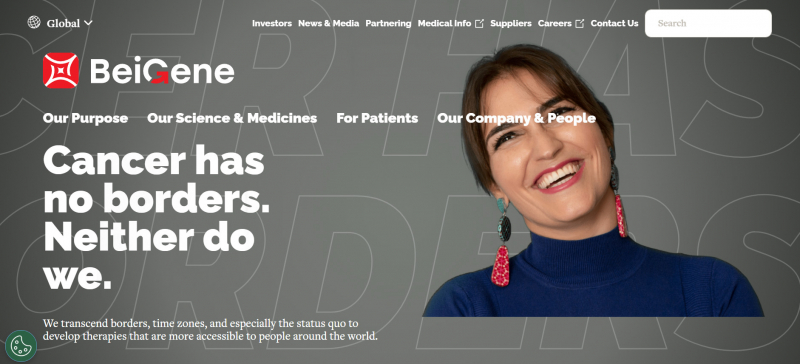BeiGene
John Oyler cofounded BeiGene in 2010 after successfully growing and selling two previous businesses: telecom research firm Telephia and CRO BioDuro. He'd previously served as CEO of MIT spinoff Galenea and oncology-focused Genta. But he's in it for the long run with BeiGene. The purpose is to "create China's Genentech," with a focus on cancer, particularly cancers that impact Chinese people. The concept is straightforward: China has a vast cancer population that is occasionally underserved.
BeiGene, like many other Chinese biotechs, was founded by Western-trained biopharma veterans. Among them is cofounder Xiaodong Wang, a well-known biochemist who was elected to the United States National Academy of Sciences in 2004. Executives at the company, which has expanded its pipeline and roster, nevertheless have a foreign biopharma experience. “What China has is the beginning of a very powerful industry,” Oyler said in a 2017 interview with the South China Morning Post. “It’s not a surprise that so much brilliant talent is coming back from the U.S. or Europe.”
BeiGene's growth route is likewise peppered with collaborations with big biopharma conglomerates. More than three years before its $75 million series A, news spread that the company had received a sizable investment from Merck & Co. BeiGene earned a reputation for itself in 2013 by selling rights to two medications to Merck KGaA: the PARP inhibitor pamiparib (BGB-290) and the RAF dimer inhibitor lifirafenib (BGB-283).
Headquarters: 55 Cambridge Parkway, Cambridge
CEO: John Oyler
Founded: 2010
Website: https://www.beigene.com/












